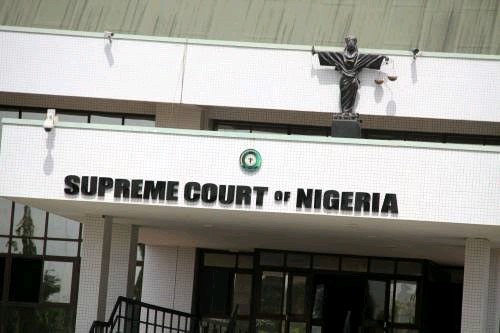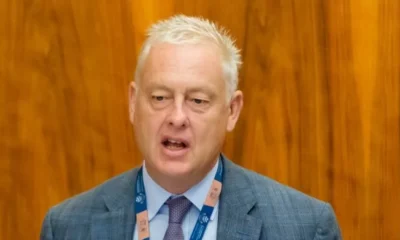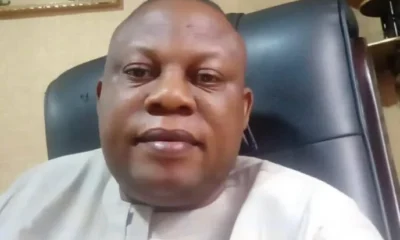Six States of the Federation have dragged the Federal Government before the Supreme Court seeking cancellation of the last February 25, 2023 Presidential and National Assembly elections.
The six states who instituted the suit through their Attorneys General are Adamawa, Akwa Ibom, Bayelsa, Delta,Edo and Sokoto.
The suit was filed pursuant to section 6 (6)14(3)153(2) and 252 of the 1999 Constitution and inherent jurisdiction of the Apex Court.
They are asking the Supreme Court to invoke relevant provisions of the law to annul the poll based on alleged irregularities and malpractices.
The States want the apex court to declare that the pronouncement of the candidate of the All Progressives Congress, Bola Ahmed Tinubu, as winner of the February 25 presidential election and president-elect based on that election be voided by the court.
They are seeking “A declaration that the entire results of the Presidential Election conducted on the 25th of February, 2023 announced by the Chairman of INEC at the National Collation Centre, Abuja, in flagrant violation of the provisions of Sections 25; 47(2); 60 (1), (2), (4) & (5); 62; 64(4)(a) & (b); 70; and 148 of the Electoral Act, 2022, governing the 2023 nationwide general elections, particularly paragraphs 38 of the INEC Regulations and Guidelines for the Conduct of Elections, 2022; and paragraphs 2.8.4; 2.9.0; and 2.9.1 of the INEC Manual for Election Officials, 2023, for the conduct of the Presidential Election, were invalid, null and void, and of no effect whatsoever.
“A declaration that the fundamentally flawed electoral process through the non-uploading of the results of each of the 176,974 Polling Units nationwide, in respect of the presidential election and National Assembly Elections held on Saturday, 25th February 2023 were not in accordance with the provisions of Sections 25; 47(2); 60 (1), (2), (4) & (5); 62; 64(4)(a) & (b); 70; and 148 of the Electoral Act, 2022, governing the 2023 nationwide general elections, particularly paragraphs 38 of the INEC Regulations and Guidelines for the Conduct of Elections, 2022; and paragraphs 2.8.4; 2.9.0; and 2.9.1 of the INEC Manual for Election Officials, 2023, for the conduct of the presidential election.”
In addition, they are seeking “A declaration that the failure of the Federal Government of Nigeria, the Independent National Electoral Commission to electronically transmit or transfer Polling Unit Results in Form EC8A using BVAS by uploading Scanned Copy of the said Unit Result to the Independent National Electoral Commission Result Viewing Portal (IReV) after the counting and announcement of the Polling Units results on 25th of February, 2023 in collusion, violates the provision of Sections 25; 47(2); 60 (1), (2), (4) & (5); 62; 64(4)(a) & (b); 70; and 148 of the Electoral Act, 2022, governing the 2023 nationwide general elections, particularly paragraphs 38 of the INEC Regulations and Guidelines for the Conduct of Elections, 2022; and paragraphs 2.8.4; 2.9.0; and 2.9.1 of the INEC Manual for Election Officials, 2023, for the conduct of the presidential election.”
They are also seeking an order of the apex court “directing a holistic review of all results so far announced by the Federal Government of Nigeria through INEC which were carried out other than through the manner prescribed by the provisions of the Electoral Act, 2022, the INEC Regulations and Guidelines for the Conduct of Elections, 2022; and the INEC Manual for Election Officials.
“And for such further Orders as the Honourable Court may deem fit to make in the circumstance.”
The plaintiffs also brought an application praying the apex court for an order directing a departure from the rules of the apex court in the interest of justice by directing for accelerated hearing of the substantive suit.
Besides, the plaintiffs also filed another application seeking for an order for abridging time for parties to file and serve responses for and against the suit. No date has been fixed for hearing.
The plaintiffs in the originating summons marked: SC/CV/354/2023, are specifically asking for an order of the apex court, “directing a holistic review of all results so far announced by the Federal Government of Nigeria through the Independent National Electoral Commission (INEC) which were carried out other than through the manner prescribed by the provisions of the Electoral Act, 2022, the INEC Regulations and Guidelines for the Conduct of Elections, 2022; and the INEC Manual for Election Officials”.
The suit filed by the Attorneys General of Adamawa, Akwa-Ibom, Bayelsa, Delta, Edo and Sokoto States has the Attorney General of the Federation as sole respondent and was brought pursuant to Sections 6 (6) (a), 14 (2) (b), 153 (1) (F) and 232 (1) of the 1999 Constitution of the Federal Republic of Nigeria (as Amended); 2. Sections 25 (1), (2) and 3; Sections 60 And 66 Of The Electoral Act, 2022.
They predicated their case on the grounds that, “The collation of the national election results from the 36 States of the Federation, and that of the Federal Capital Territory, for the said 2023 Presidential and National Assembly elections have not been carried out in compliance with the mandatory provisions of relevant sections of the Electoral Act, 2022; the INEC Regulations and Guidelines for the Conduct of Elections, 2022, made pursuant to the provisions of the Electoral Act, 2022; and the INEC Manual for Election Officials, 2023.”
According to the suit filed on February 28, by their lawyers, Mike Ozekhome, a Senior Advocate of Nigeria (SAN), the agents and officials of the federal government and INEC, failed to transmit the collated result as prescribed by the provisions of the Electoral Act, 2022; the INEC Regulations and Guidelines for the Conduct of Elections 2022; and the INEC Manual for Election Officials requiring transmission of the results by the use of Bimodal Voter Accreditation System (BVAS) in flagrant breach of the relevant provisions of the Electoral Act, 2022; the INEC Regulations and Guidelines for the Conduct of Elections, 2022; and the INEC Manual for Election Officials, 2023.
It was their submission that the, “Non-compliance with the due process of law has led to a widespread agitation, violent protests, displeasure, and disapproval from a wide spectrum of the Nigerian populace, including international observers, political parties, well-meaning Nigerians and former Head of States of the Federal Republic of Nigeria”.
They further claimed that the widespread violent protests, demonstrations and rallies endangered the peace, order, good governance, security and safety of the plaintiffs.
The plaintiffs argued that the federal government through INEC, “is empowered by law to correct the elections due to technical glitches and errors arising from the conduct of the elections with substantial effect on the electoral process in line with the provisions of Section 47 (3) of the Electoral Act, 2022; and other relevant sections thereof.
“The Federal Government of Nigeria has nonetheless continued to collate results for the Presidential and National Assembly elections, against the provisions of extant Electoral laws and Guidelines, notwithstanding the fundamental flaws identified in the process of the collation of results and the public outcry that has greeted the entire electoral process.
“Whilst queries were being raised as to the failure or deliberate refusal of INEC to transmit the results electronically, INEC suddenly pulled down its portal harbouring the Regulations and Guidelines, thus leaving the plaintiffs in the dark.
“Most Nigerians, including the governments and peoples of Adamawa State, Akwa Ibom State, Bayelsa State, Delta State, Edo State, and Sokoto State, are entitled to a proper and electoral lawful process and procedure that guarantees a free, fair, transparent and credible election.
“There is no justifiable basis for the ongoing collation of results without compliance with the mandatory provisions of the law that mandatorily require the use of BVAs, electronic transmission to the IRev Portal.
“Unless this Honourable court intervenes, the Governments and peoples of Adamawa State, Akwa Ibom State, Bayelsa State, Delta State, Edo State, and Sokoto State, who have suffered and will continue to suffer irreparable hardship and damage of unquantifiable proportions by being denied the opportunity to participate fairly in a free, transparent, fair and credible election, which can lead to a breakdown of law and order and thus endanger the public peace, security, safety, order and good governance, consequent upon the violent demonstrations and protests that have already started to take place in different parts of the country, including the Plaintiff States, as a result of the fundamentally flawed electoral process, which does not represent the wishes of Nigerians and of the plaintiff states,” they submitted.
Amongst the issues raised for determination by the apex court were: Whether having regard to the provisions of Sections 25; 47(2); 60 (1), (2), (4) & (5); 62; 64(4)(a) & (b); 70; and 148 of the Electoral Act, 2022, governing the 2023 nationwide general elections, particularly paragraphs 38 of the INEC Regulations and Guidelines for the Conduct of Elections, 2022; and paragraphs 2.8.4; 2.9.0; and 2.9.1 of the INEC Manual for Election Officials, 2023 thereof, the electronic transmission of votes collated at polling units and the use of the Bimodal Voter Accreditation System (BVAS) in the transmission of collated result is made mandatory.
“Whether by virtue of the provisions of Sections 25; 47(2); 60 (1), (2), (4) & (5); 62; 64(4)(a) & (b); 70; and 148 of the Electoral Act, 2022, governing the 2023 nationwide general elections, particularly paragraphs 38 of the INEC Regulations and Guidelines for the Conduct of Elections, 2022; and paragraphs 2.8.4; 2.9.0; and 2.9.1 of the INEC Manual for Election Officials, 2023, for the conduct of the Presidential Election, the Federal Government of Nigeria through presiding officers of its executive body, Independent National Electoral Commission was bound to electronically transmit or transfer Polling Unit Results in Form EC8A using BVAS by uploading Scanned Copy of the said Unit Results to the Independent National Electoral Commission Result Viewing Portal (IReV) in the course of the General Elections held on the 25th of February, 2023 throughout the Federation.
“Whether the Federal Government of Nigeria in the recently held Presidential and National Assembly elections conducted nationwide on 25th February, 2023 through INEC, complied with the mandatory provisions of extant laws, INEC Regulations and Guidelines for the Conduct of Presidential Elections, 2022.
“Whether the failure of the Federal Government of Nigeria through the Defendant and INEC to electronically transmit or transfer Polling Unit Results in Form EC8A using BVAS by uploading Scanned Copy of the said Unit Result to the Independent National Electoral Commission Result Viewing Portal (IReV) after the counting and announcement of the Polling Units results on 25th of February, 2023, violates the provisions of Sections 25; 47(2); 60 (1), (2), (4) & (5); 62; 64(4)(a) & (b); 70; and 148 of the Electoral Act, 2022, governing the 2023 nationwide general elections, particularly paragraphs 38 of the INEC Regulations and Guidelines for the Conduct of Elections, 2022; and paragraphs 2.8.4; 2.9.0; and 2.9.1 of the INEC Manual for Election Officials, 2023, for the conduct of the presidential election.
“Whether the failure of the Federal Republic of Nigeria through INEC to comply with the provisions of Section 60 of the Electoral Act, 2022 and the Regulations and Guidelines for Conduct of Elections, 2022 made pursuant to the Electoral Act and the Constitution of the FRN, 1999, as amended, in collating and announcing the results of the Presidential and National Assembly Elections render the already announced results and the elections conducted as a whole a nullity.
“Whether the entire results of the presidential election conducted on the 25th of February, 2023, as announced by the Chairman of INEC at the National Collation Centre, Abuja in flagrant provision of Sections 25; 47(2); 60 (1), (2), (4) & (5); 62; 64(4)(a) & (b); 70; and 148 of the Electoral Act, 2022, governing the 2023 nationwide general elections, particularly paragraphs 38 of the INEC Regulations and Guidelines for the Conduct of Elections, 2022; and paragraphs 2.8.4; 2.9.0; and 2.9.1 of the INEC Manual for Election Officials, 2023, for the conduct of the Presidential Election, were valid.”
In the event the questions raised were determined in their favour, plaintiffs urged the apex court to then declare, “that the Federal Government of Nigeria, through INEC was bound to electronically transmit or transfer Polling Unit Results in Form EC8A using BVAS by uploading Scanned Copy of the said Unit Result to the Independent National Electoral Commission Result Viewing Portal (IReV) in the course of the General Elections held on the 25th of February, 2023 throughout the Federation in compliance with the provision of Sections 25; 47(2); 60 (1), (2), (4) & (5); 62; 64(4)(a) & (b); 70; and 148 of the Electoral Act, 2022, governing the 2023 nationwide general elections, particularly paragraphs 38 of the INEC Regulations and Guidelines for the Conduct of Elections, 2022; and paragraphs 2.8.4; 2.9.0; and 2.9.1 of the INEC Manual for Election Officials, 2023, for the conduct of the presidential election.”
Below are the documents filed.
Doc105
Doc106
Doc108
Doc111
Doc110
Credit: Channels TV

 BIG STORY5 days ago
BIG STORY5 days ago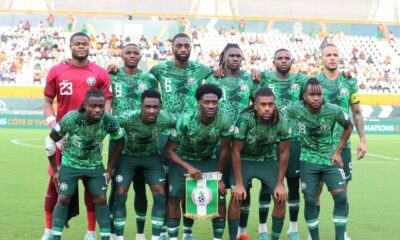
 BIG STORY5 days ago
BIG STORY5 days ago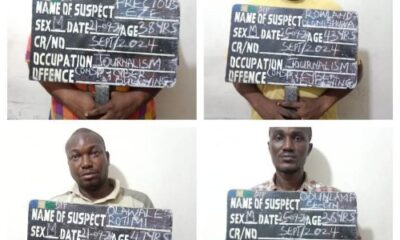
 BIG STORY4 days ago
BIG STORY4 days ago
 BIG STORY4 days ago
BIG STORY4 days ago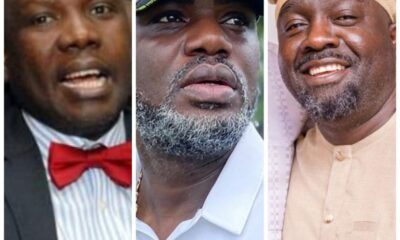
 BIG STORY4 days ago
BIG STORY4 days ago
 BIG STORY4 days ago
BIG STORY4 days ago
 BIG STORY4 days ago
BIG STORY4 days ago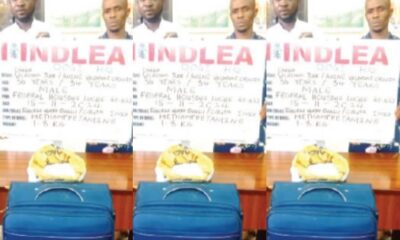
 BIG STORY1 day ago
BIG STORY1 day ago




